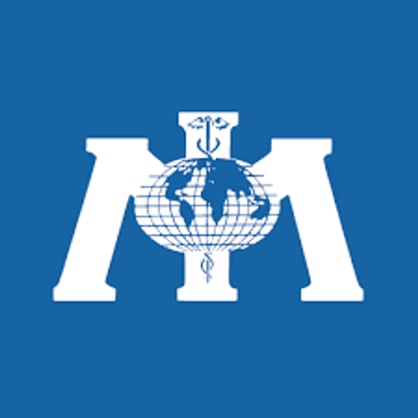
International Medical Corps
International Medical Corps provides emergency relief to those struck by conflict, disaster and disease—no matter where they are, no matter what the conditions—working with them to recover, rebuild and gain the skills and tools required for self-reliance. After the emergency has passed and our disaster-relief effort has ended, we shift from emergency medical response to long-term medical support and training. We provide resources and training to help local staff provide a range of services—including healthcare, food, water and sanitation support—to their communities.
Sahro Bakat used to wake up every day knowing that she would not have enough food to feed her two young children.
“Skipping meals became a regular occurrence,” Sahro explains. “And I began noticing alarming changes in my younger daughter, Cimran. She was losing a significant amount of weight. Her ribs became more prominent, and she stopped playing with her sister. I grew deeply worried but did not know what to do.”
Sahro’s husband was a farmer who provided for their family until years of flooding and subsequent poor harvests left them destitute. Now, he lives in Mogadishu, Somalia’s capital, where he works as a day laborer—inconsistent and grueling work with little income. Sahro, her children and her mother-in-law live in a settlement for displaced people outside the city of Jowhar, some 60 miles (about 92 km) from Mogadishu.
One day, community health workers visited Sahro and her family to see how they were doing. They measured Cimran’s mid-upper arm circumference (MUAC), which was dangerously low, and referred Cimran and Sahro to a nearby International Medical Corps-supported clinic, Fanoole Food Distribution Center.
When they arrived, health workers confirmed that Cimran was malnourished and admitted her to our nutrition program. While in the program, she received ready-to-use supplementary food and essential medications, including vitamin A, deworming treatment and a measles vaccine. After 74 days in the program, she was discharged as cured.
“I am overwhelmed with joy seeing how much my daughter’s health has improved,” says Sahro. “Today is the happiest day of my life, knowing that she is healthy and no longer requires treatment. Words cannot express my gratitude for the incredible care she received.”
Cimran is one of 1.7 million children in Somalia who are expected to suffer from malnutrition this year. International Medical Corps implements comprehensive nutrition programs in 70 facilities across the country, targeting malnutrition in children and in pregnant and lactating women.
“After years of flooding and drought, millions of people have been displaced and families are suffering,” explains Naomi Mwikali Ndung’u, Head of International Medical Corps’ Nutrition team in Somalia. “We train community health workers to identify malnutrition during their door-to-door visits and refer malnourished women and children to our health facilities, where they receive comprehensive treatment.”
Financials
Programs
Emergency Response & Preparedness
Because disaster can strike anywhere, anytime, the ability to respond even in the most remote areas of the world is essential for effective emergency response. And with the acute phase of disaster response measured in just hours –that brief window of opportunity when most lives can be saved and life-threatening disease contained—deployment speed is critical.
Health Services Support
Efficient, well-organized and well-supported health services can be life-saving and life-changing. More than 3 million children under 5 years of age and more than 300,000 pregnant women who die each year globally from preventable deaths could be saved by access to well-equipped, well-trained and motivated health care professionals.
Women's & Children's Health
International Medical Corps considers women’s and children’s health a key priority for healthy communities. Because women constitute the foundation of both families and communities, their well-being is essential for the success of those around them. Protecting that well-being is a central challenge of women’s and children’s health in most communities.
Nutrition, Food Security & Livelihoods
Nutrition is the foundation of life. Malnutrition, both chronic and acute, contributed to 3.1 million deaths of children under 5 in 2015 –more than a third of all deaths in that age group. Inadequate nutrition also carries enormous social and economic costs, leaving more than 165 million children with stunted growth, compromised cognitive development and poor physical health.
Mental Health and Psychosocial Support
Survivors of conflict and disasters are at higher risk for psychological distress and mental health conditions due to continued and overwhelming chaos and uncertainty, as well as the enormity of their loss that often includes homes, community, loved ones and livelihoods. As one of the few international relief organizations to prioritize prevention and treatment of mental health and psychosocial needs in humanitarian crises, we have the capacity to respond to these immediate needs.
Water, Sanitation & Hygiene
Providing adequate water, sanitation and hygiene (WASH) services is a key public health challenge in today’s world. Access to safe and sufficient water and improved sanitation as well as maintaining good hygiene is crucial to human health, well-being, dignity and development. International Medical Corps works to provide these most basic human needs no matter how challenging the conditions.
Volunteering + Events
Employee Kitting Events
Build your team while building hygiene and wound-care kits. Assembled kits are prepositioned in strategic locations around the world, enabling them to be rapidly mobilized in the aftermath of a disaster to serve the needs of affected families.
